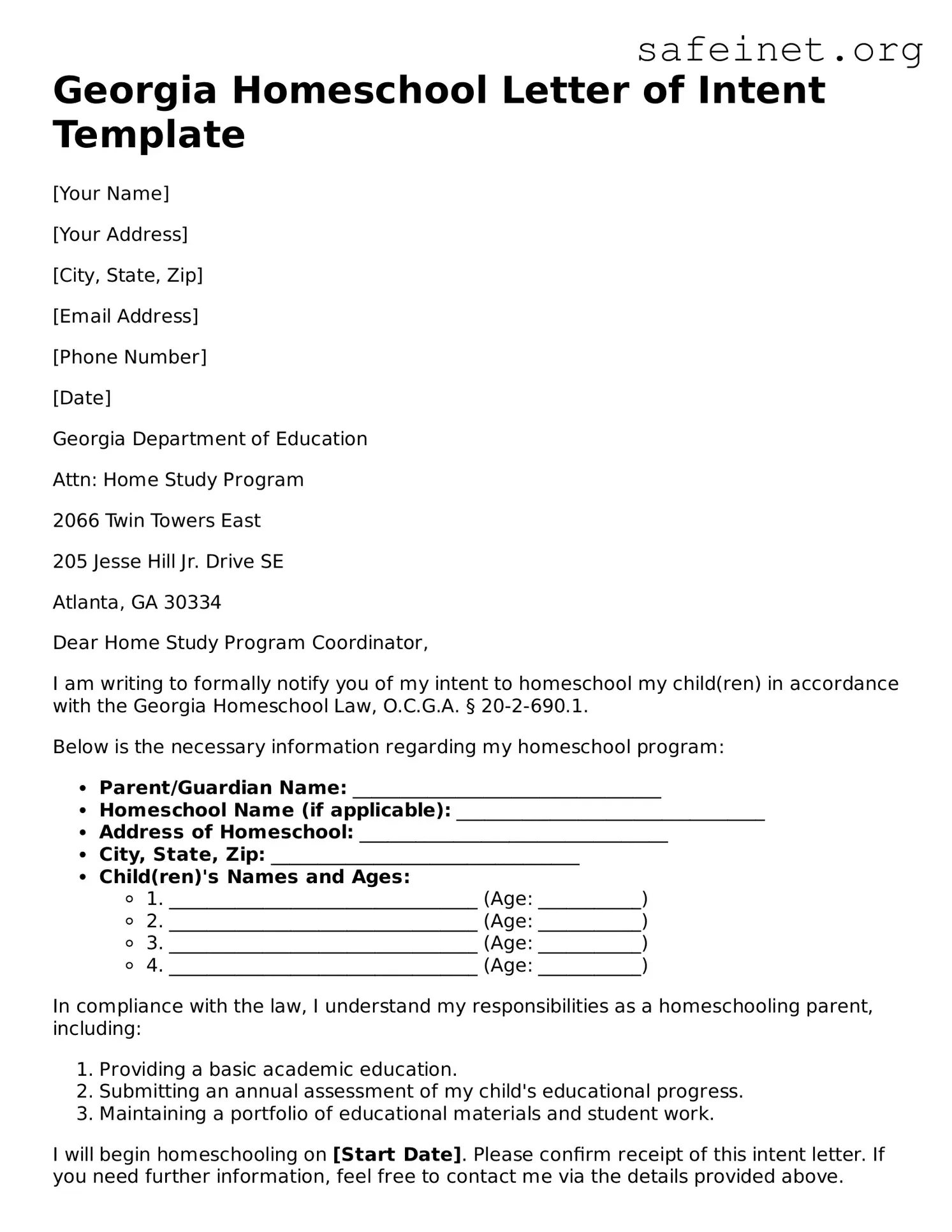What is the Georgia Homeschool Letter of Intent form?
The Georgia Homeschool Letter of Intent form is a document that parents or guardians submit to their local school district to officially notify them of their intention to homeschool their children. It serves as a formal declaration of educational plans and helps the district keep accurate records of homeschooling families.
Who is required to submit this form?
Any parent or guardian in Georgia who wishes to homeschool their child must submit a Letter of Intent. This includes families with children in grades K-12. It's important to note that each child being homeschooled requires a separate form for the notification.
When should the letter be submitted?
The letter should be submitted at least 30 days before the homeschool program begins. If a family is transitioning from a public or private school, they must also submit the form within 30 days of withdrawal. Timely submission ensures compliance with state regulations regarding homeschooling.
What information needs to be included in the Letter of Intent?
The Letter of Intent must include specific details such as the name and address of the parent or guardian, the names and ages of the children being homeschooled, and a declaration of the intent to provide home education. Some families may include additional information, such as the educational curriculum they plan to use, although this is not required.
Is there a specific format required for the Letter of Intent?
No specific format is mandated for the Letter of Intent, but it should be clear, concise, and include all necessary information. Many families choose to use a standard template to ensure they don’t miss any important details. Local school districts may provide suggested formats or guidelines, so checking with them could be helpful.
What happens after submitting the Letter of Intent?
Once submitted, the local school district will typically acknowledge receipt of the Letter of Intent. There is no approval process involved, but families should keep a copy for their records. It’s crucial to remain compliant with Georgia regulations, which may include submitting annual assessments or progress reports to the district.
